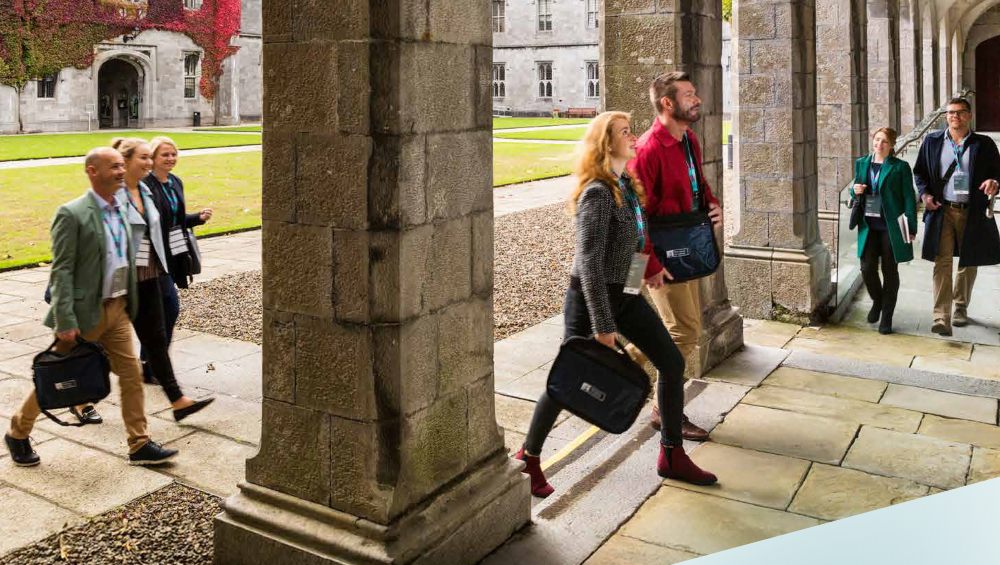Cork event hears of major funding imbalance despite global opportunities for regional technology SMEs.
It is acutely difficult for SMEs outside Leinster to raise funding, especially at a time when Irish and global venture capital investment continues to decline.
This is made all the more frustrating when you consider global opportunities for tech companies in particular have never been greater.
“There is huge potential for regional technology SMEs to exploit these massive global opportunities, but it requires early-stage seed funding for high risk, high reward innovative companies”
Denise Sidhu, chair, Irish Venture Capital Association, and partner of Cork headquartered Kernel Capital, pointed out that venture capital investment outside Leinster (excluding Northern Ireland) amounted to 26% of the total in 2022 or €340m. Munster accounted for 7% of the total last year or €95m.
Vincent Forde, founder and CEO of Cork based Gasgon Medical, said that despite the current difficult funding environment, regional technology SMEs, which are scalable globally, can raise venture capital, “but it is much more difficult when you are located outside the Dublin financial bubble.”
Growth opportunities beyond the Dublin financial bubble
Dr Cudmore of UCC pointed to a number of major growth opportunities for Irish technology SMEs.
“For example, because of global tensions, the US and European Chips Acts are mobilising billions of dollars and euros in public and private investments in the semiconductor space. Cork based Tyndall National Institute is one of the top semiconductor research centres in the world. There is huge potential for regional technology SMEs to exploit these massive global opportunities, but it requires early-stage seed funding for high risk, high reward innovative companies.”
She added: “We need to help our SMEs that have developed excellent products to scale. Government policy could assist by encouraging public sector organisations to be more open to testing and validating SME products.”
The UCC director of Innovation added that Ireland should target and focus funding to high growth sectors where the country already had some natural advantages, not only in semiconductors, but also in food/agri-tech business and renewable energy.
“European countries, such as Germany, are already pursuing this policy and aiming to build a national ecosystem in sectors where they can become word leaders.
“A specific example, and particularly relevant to Munster, is precision fermentation which generates alternative protein and other high-value compounds. This is regarded as a technology that has the potential to disrupt the food and agriculture industry entirely. Ireland has a distinct competitive advantage in this emerging sector and the potential to be a trail blazer.”
Rise of the regions
Denise Sidhu, chairperson, IVCA said, “Ireland’s population is forecast to grow by a million by 2040. As Dublin faces increasing capacity issues, there is an opportunity to ensure a shift in population and jobs to each region.”
She added, “Recent job cutbacks across pharma and tech multinationals, and fall in corporation tax from these sources, emphasise the need to grow an indigenous regional base of innovative firms.”
Carrigaline-based Gasgon Medical has so far raised €2.25m in seed funding from Irish, US and Spanish venture capital investors. Vincent Forde, founder and CEO said, “SMEs located outside the Dublin financial bubble looking to raise capital have to work much harder to build relationships and trust.”
Larry O’Donoghue, CEO, CorkBIC agreed with Vincent Forde of Gasgon that the best startups will tend to secure investment, regardless of location. “But it’s a chicken and egg situation. Venture capital firms need a supply of good companies in which to invest. How can we boost the pipeline of investible startups in the regions?”
He said that one of the major gaps that has existed for some time in the regions is the lack of fund backed accelerators. A business accelerator is a series of programmes designed to help established startups scale quickly.
“Fund backed accelerators could attract not just indigenous startups and invest in them at a pre-seed and seed stage, but also bring investable international startups to relocate to Ireland and develop their startups from a regional base,” said Mr O’Donoghue.
The Munster event was organised by the IVCA in response to the Government’s White Paper on Enterprise 2022-2030.
Pictured: Denise Sidhu, chairperson, IVCA, Simon Coveney TD, Minister for Enterprise Trade and Employment and Sarah-Jane Larkin, director general, IVCA












